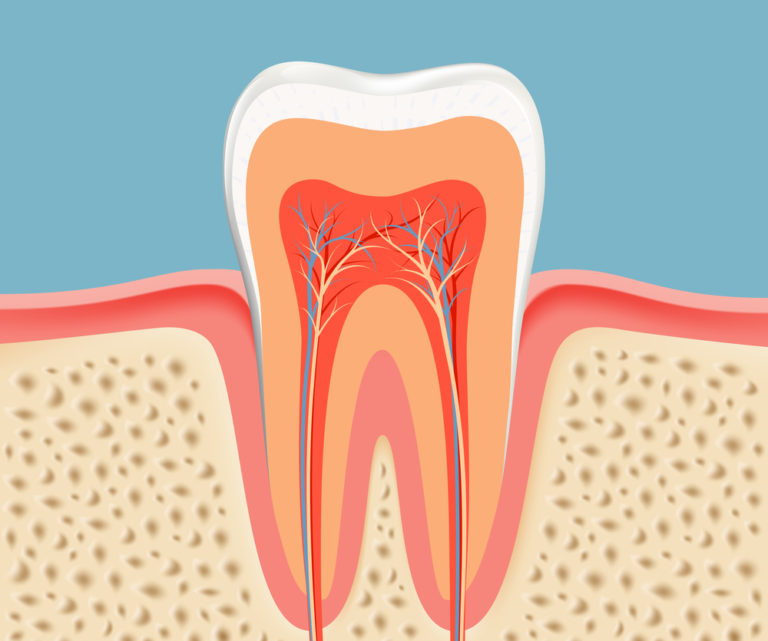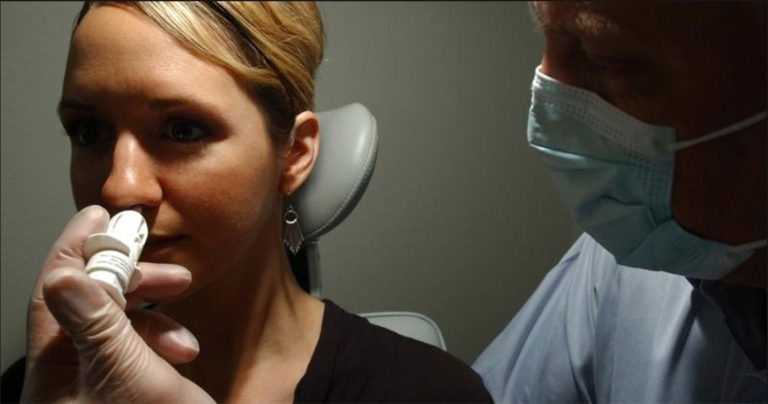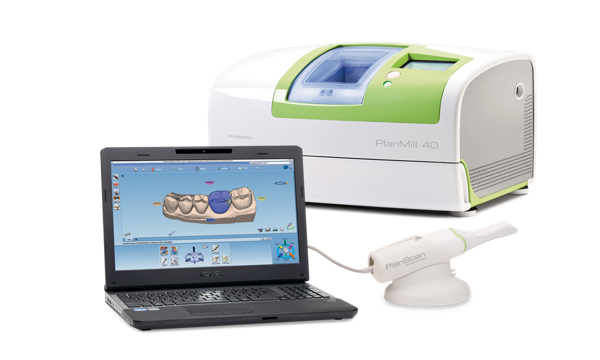Root canals are valuable dental procedures used to treat and preserve teeth with badly infected roots. The pulp is the live portion of the tooth that extends into the root and contains nerve endings and tissues. When it becomes infected, patients can experience pain, swelling and even total tooth loss unless treated. Root canals remove the damaged parts of the tooth and infected root. In some cases, an antibiotic is prescribed to help prevent further infection within the tooth. The organic portion of the tooth that remains may be restored using a cap or crown that provides a natural appearance and normal tooth function.
Many patients associate root canals with pain and discomfort.
But local anesthetics and advancements in modern dentistry have made root canals highly tolerable procedures that are often no less comfortable than getting a standard filling. Upon completion, a restored tooth that has undergone a root canal will blend in with surrounding teeth – virtually undetectable to the average eye. More than 9 out of 10 root canal procedures are successful, and most treatments last many years or even a lifetime.
Symptoms Indicating the Need for a Root Canal
- Severe toothache, especially when chewing
- Prolonged sensitivity to hot or cold temperatures
- Darkening or discoloration of the tooth
- Swollen, tender gums
- A persistent or recurring pimple on the gums
Why Root Canal Treatment is Needed
Root canal treatment is necessary to treat a tooth that has become infected or severely decayed. The procedure involves removing the damaged area of the tooth (the pulp), cleaning, disinfecting, and then filling and sealing it. This process eliminates infection, alleviates pain, and can prevent further decay or damage to your tooth.
Treatment Process
Our root canal treatment process includes the following steps:
- Diagnosis: Using X-rays and other diagnostic tools to determine the extent of the tooth damage.
- Local Anesthesia: Administering anesthesia to ensure a pain-free experience.
- Pulp Removal: Carefully removing the infected or damaged pulp from the tooth.
- Cleaning and Sealing: Thoroughly cleaning the canal and sealing it to prevent further infection.
- Restoration: Placing a crown or filling for protection and to restore the tooth’s functionality.
Prevention
To prevent the need for future root canal treatments, consider the following tips:
- Maintain good oral hygiene with regular brushing and flossing.
- Schedule regular dental check-ups and cleanings.
- Use a mouthguard to protect your teeth from injuries.
- Avoid chewing on hard foods or objects.
Outlook
Most teeth fixed with a root canal can last a lifetime with proper care. The success rate of root canal treatments is high, and they are known for their effectiveness in preserving natural teeth.
Frequently Asked Questions
Am I a candidate for a root canal?
You could be a candidate for a root canal if decay or damage has allowed bacteria to infect the pulp inside your tooth. A root canal could also be the right treatment for you if you prefer to preserve as much of your natural tooth as possible instead of extracting both the healthy and diseased portions of your tooth. For more information about root canals and whether they are right for you, schedule a dental exam and consultation at your earliest convenience.
What should I expect during my root canal treatment?
If you decide to undergo a root canal, the first step in your procedure will involve a local anesthetic. Once your tooth root is numb, the diseased portion of your tooth pulp will be removed and potentially treated for bacterial infection. The tooth will then be sealed and filled before being restored with a crown.
What type of post-treatment care is required after a root canal?
It is normal for teeth to become inflamed after a root canal, potentially causing sensitivity for the first several days following treatment. However, normal brushing and flossing habits can be resumed immediately after treatment and restoration is complete.
Need a Root Canal? Reach Out for Expert Care!
If you’re experiencing symptoms that may require a root canal, don’t hesitate to contact the expert team at Fedorciw, Massoumi & Kolbig in Cromwell, CT. We’re committed to providing gentle, effective treatment to relieve pain and save your natural teeth. Call us at 860-635-4666 to schedule a consultation.






